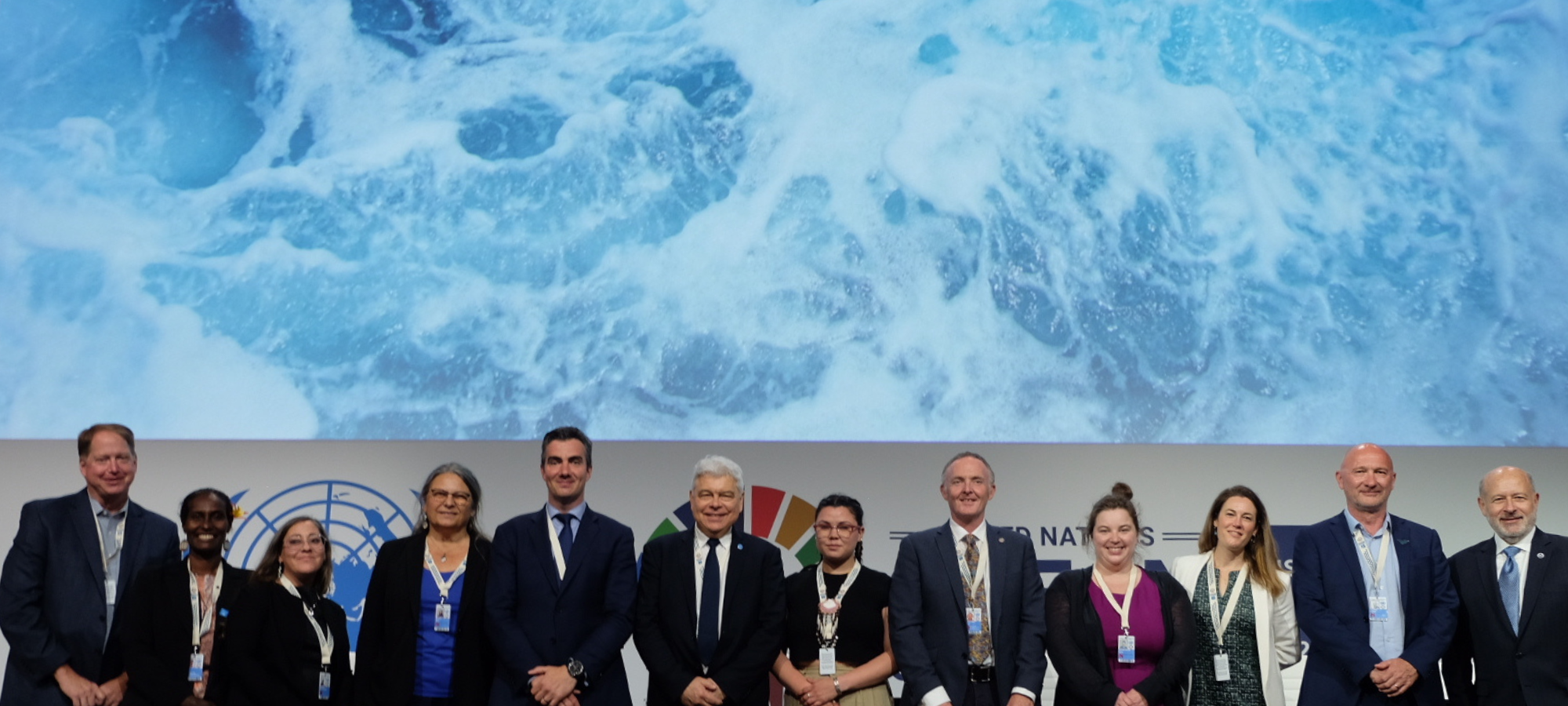
Action #6:
Sustain international support
International and multi-government commitments to addressing climate change and sustainable development play an important role in stimulating collective action on OA.
Less than 2% of international climate adaptation funding is applied towards ocean and coastal adaptation projects. Only 1.6% of official development assistance supports the ocean economy. SDG 14 is the least funded of the UN Sustainable Develop Goals. Internationally, approximately 70% of the knowledge generated about ocean acidification comes from research conducted across North American and European countries.
This means that UN and domestic frameworks must be leveraged to ensure adequate focus and equitable investments in climate-ocean change information, gaps analysis, and capacity or technology transfer that result in better preparedness, mitigation, and adaptation choices for all.
Call for increased climate financing for ocean and coastal climate monitoring and research, risk assessments and adaptation measures across the Green Climate Fund, Global Environment Facility, UN Environment Programs, Development Banks, regional frameworks and other available financing mechanisms.
Engage in the UNFCCC Ocean and Climate Dialogue aims to strengthen ocean mitigation and adaptation strategies across the convention with a specific focus on NDCs and NAPs.
Support implementation of UN SDG 14.3 by reporting OA monitoring data and making voluntary commitments to advancing OA policy and investments domestically.
Join and support international knowledge-exchange networks focused on OA, including Global Ocean Acidification Observing Network (GOA-ON), the OAR Research for Sustainability Programme under the UN Decade of Ocean Science, and the the International Ocean Acidification Coordinating Centre (OA-ICC).
Mainstream OA information and action to support implementation of Convention of Biological Diversity targets and Sustainable Ocean Plans as called for by the High-Level Panel on Ocean Sustainability.
What can you do?
examples from members
The Government of Chile and Canada are co-chairs of the UNFCCC Ocean and Climate Dialogue, helping strengthen ocean mitigation and adaptation measures across the Paris Climate Agreement.
The Government of New Zealand champion’s the Commonwealth Blue Charter Ocean Acidification Action Group and works to advance ocean acidification education, science, and policy across Commonwealth governments.
Alongside regional partners like University of South Pacific and Pacific Community, the U.S. is investing in a Pacific Island OA training center to support regional capacity for OA knowledge and response.
The province of British Columbia is supporting implementation of OA Research for Sustainable Development Programme under the UN Decade of Ocean Science.
Tsleil-Waututh Nation made a Voluntary Commitment to UN SDG 14.3 to support OA policy as part of their Cumulative Effects Monitoring Initiative (CEMI) which is developing a holistic monitoring program to predict future climate change effects, and prioritize environmental protection.

